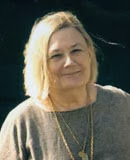About Me

- Anita Burgh
- I am a writer - late developer since I wasn't published until I was 50. I have now written 23 novels, numerous short stories and articles.
Followers
Blog Archive
My Blog List
Powered by Blogger.
Slideshow
Sunday, 15 November 2009
I’m a bit late and hurried today – we were taken out for a super lunch by my son and his wife. It was such a happy day. In consequance I’ve probably forgotten something important!
So, what next? You’ve decided who you want to write about and probably where they are. The setting. We touched on this back in August but I think we should look at it in greater depth because for me, scene setting is critical and can too easily be overlooked. Sometimes too much is left to the readers imagination. If you tell them where your characters are, they will still use their own imagination but you have given them the bases to build on.
Without scene setting then everyone you creat is left in limbo. By describing where they are anchors the characters; it acts like a compass for your readers; it allows them to acclimatise to the world you have created; It indicates mood. It is a tool for giving masses of information in the easiest way. And in any case it can be fun.
Lets look at those points in more depth.
Anchor/compass. If something is about to happen in your plot then where everyone is can be relevant. We’ve all been in environments where we feel secure, happy – and it will be the setting we are in which helps us feel that way. So in fiction. On the other hand you can be in a place which makes you uncomfortable, afraid – so in your book. The atmosphere you are creating with the scene setting gives pointers to the reader, which they will probably not be aware of but they are all the same.
Mood. Where they are can affect the mood, the situation, the outcome for your characters. A wood – it can be a place of peace and beauty which makes them feel happy but it can also be a creepy place. A storm – it can be dangerous, and yet it can clear the air. A sunset – happiness or sadness. Don’t forget the seasons. We all feel different at different times of the year, so use it.
Information. Where people live, where they choose to be, eat, dream can tell us much about them. The decor in a house, the furniture, the colours they use, the fabrics they have, the books they own, the paintings on the wall will give so much information as to what sort of people they are. Tidy or untidy, rich or poor, the class they are, their state of mind even. You can tell your reader so much in a concise way.
Fun. In my Sarson Magna books I created a whole village, that was enormous fun. I love old houses and there is nearly always one in my books which, invariably, I describe in depth. Houses are important to me and frequently to my characters too and so sometimes the house is virtually a character also so it is a combination with scene setting.
Tip. If a house or garden or village is important in my book then I always draw a plan so that as they move about the building there is a consistency – so, if they turn left by the front door they end up in the right room! It’s important since if you don’t notice, I can assure you one of your readers surely will.
I also make a note of what furniture is in different rooms and also the position, what pictures, minute detail. If you make a mistake and put the Stubbs in a different room then you lose credibility
And don’t forget to put a line space when changing scenes.
Subscribe to:
Post Comments
(Atom)






I enjoy scene setting almost best of all when writing a book. And yes, yoi do have to watch out for continuity. Best to make a detailed plan of the house your book is set in before you begin, I reckon!
ReplyDeleteYour Sarson Magna's my Steeple Martin, and now I've actually got a proper map of it! Very important to me, the setting, and you always do such a good job of it.
ReplyDeleteI looked into my MC's cottage and boy is it boring. I will have to redecorate it and build on the description, thanks for the tips.
ReplyDeleteHello Anita,
ReplyDeleteI read your suggestions to those "would-be - writers" with great interest. They were indeed very beneficial for me. I really thank you very much.
ilhan ates from Turkey
p.s. Elizabeth Berk was my teacher in university when she lived in Turkey in 1970s. She advised me to read your articles.
Sincerely yours